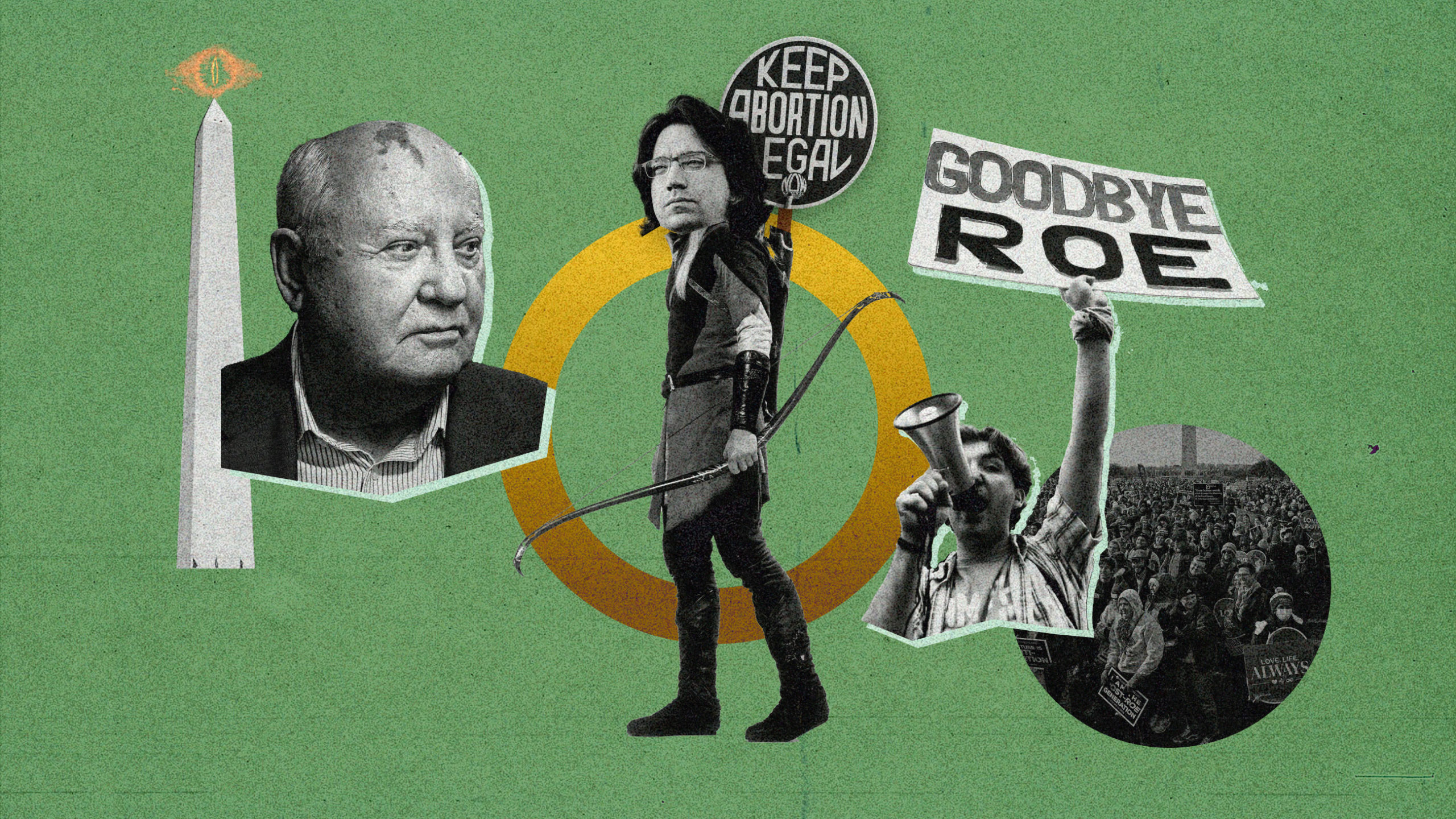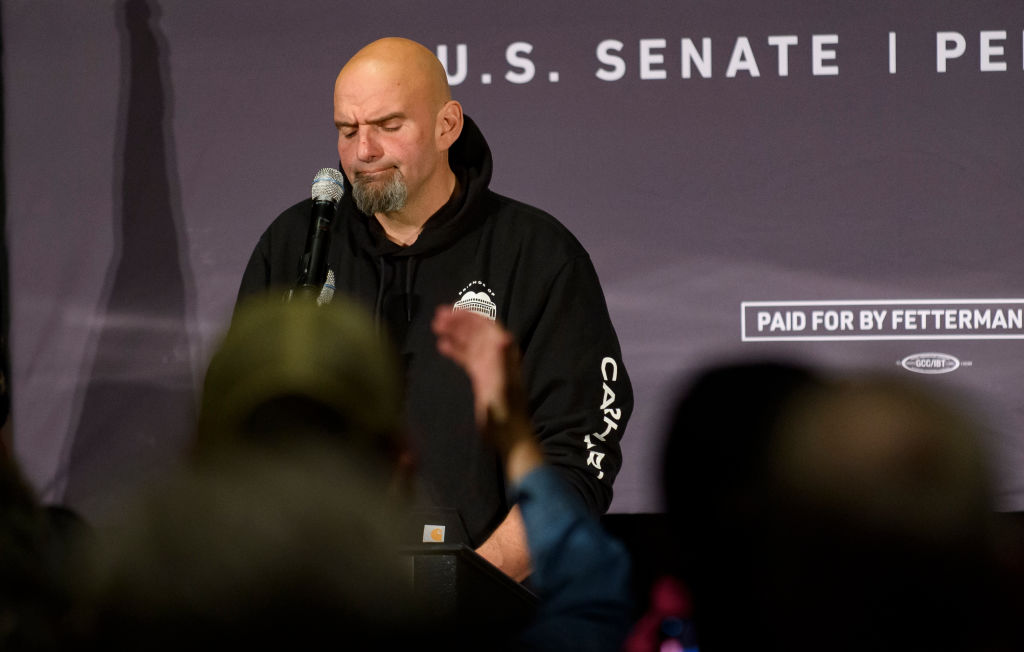All hail our globalist overlords.
Beyond Elves and Hobbits

The Right can and must fight the culture war.
Twitter was abuzz last week over an essay that drew an unusual kind of friendly fire: Curtis Yarvin’s admonition to the Right’s culture warriors that they “can only lose.”
Full disclosure: I have been a fan of Yarvin’s work since the earliest days of his original “Unqualified Reservations” blog more than ten years ago. Both intellectual and influential, Yarvin has been one of the most important theorists to emerge in the past few decades. It’s not an accident Tucker Carlson devoted an entire show to speaking with him. Indeed, a high-end ecosystem has grown up around his work, encompassing not just “nerds” and very-online anons but actual political actors, including, as in the case of Chris Rufo, those ostensibly futile culture warriors. So when Yarvin is wrong, which in this case I believe he is, it’s worth exploring in some detail why he is wrong and what we can learn from our disagreements with him.
Yarvin argues, essentially, that resistance to the regime by commoners is hopeless because elites play by different rules—what is good for the few will not work for the many. There’s no reason for the Right to fight on the regime’s field because the regime sets rules that ensure it always wins. This quietism is a blackpill that needlessly puts culture warriors from Rufo on down in a subservient position against their adversaries. Yarvin seemingly supposes (like most intellectuals) that the intellectual aristocracy is the true aristocracy rather than a group that, however important, is itself ultimately subservient to true power. As Charles Haywood, the respected editor of The Worthy House, put it, Yarvin’s claim that “‘we can lead you to victories which are actual victories,’ with him viewing himself among the ‘we,’ is self-refuting.”
In keeping with this overvaluation of thought and undervaluation of action, Yarvin muddles his historical analogies, claiming, for example, that “the Soviet empire was overthrown by its own leader, Mikhail Gorbachev, who had the same job as Stalin.” That’s not quite what happened. Gorbachev did weaken the Soviet system through his own mistaken view that he could reform and not destroy it—but ultimately, he was the victim of a coup that could have entirely reversed his reformist trends.
The actual power that led to the dissolution of the Soviet Union was Boris Yeltsin. He is the one who acted decisively, giving a brave and memorable speech from the turret of a tank in front of the Russian White House, which inspired soldiers to defect from the hardline putschists, ensuring the failure of the coup, after the intellectual Gorbachev had become the victim of power politics. From that point, while Gorbachev was technically restored, Yeltsin—essentially a peasant and a drunk—was primus inter pares in the Soviet Union and would later become the first President of an independent Russia.
To be sure, at the core of Yarvin’s error is an entirely sensible insight. While it is true that some tactical victories can be strategic defeats, it is by no means universally the case. Many tactical victories not only appear to be victories: they are victories. Yarvin, suffering from the brainiac’s delusion that the real achievements of history occur in the realm of pure thought, argues for what he calls strategic resistance—that “the only possible reversal must come from strategy rather than struggle.” Of course, we must always think strategically. In a practical sense, Yarvin invariably seems to argue for quiescence rather than resistance. However, sometimes the struggle is the strategy.
Tongue perhaps partially in cheek, Yarvin conceals the power of struggle by shifting from theoretical to rhetorical ground. At the pivotal point, he justifies his strategy of effective non-resistance through an extended Lord of the Rings metaphor that analogizes most of the right to deplorable “hobbits” who just want to “grill and raise kids,” while the “elves” (our leftist elite) want to “live beautiful lives,” epicene, tolerant, and green. The twist? Mixed in with these elves are so-called “dark elves” (read: Yarvin and his equals) who really like all things hobbity and hobbits themselves, without denying their own elvish nature. It is these dark elves with whom the hobbits must align—and to whom they must defer. Only a vanguard of dark elves can defeat the elves of misrule on behalf of the hobbits, who are presumably too clumsy or ill-adept to do battle on the rarefied terms of the elves.
While some may be wary of high fantasy analogies to very real-world problems, it works as far as its internal logic goes. Yet, Yarvin chooses the Dobbs abortion ruling as a particular target for his ire. Dobbs is a victory that combines exactly what Yarvin claims to want: hobbit-like armies of volunteers, marchers, protesters, and voters working patiently over decades with a high-level “elvish” strategy from theorists like Hadley Arkes, Robert George, and many Federalist Society lawyers to achieve a decisive victory. Yet Yarvin seems to recoil from actual victories and pities the hobbits’ inability to see how this apparent win will anger the elves and provoke their revenge. Dobbs is simply too déclassé for the beautiful elves to tolerate—placing even a small number of elvish bodies under the legal regime of the anti-abortion hobbits is intolerable to them (no mention is made of the baby’s body).
It is true that the Right will lose many political struggles, and Dobbs may be among them, particularly if GOP states go far beyond popular restrictions now enabled by Dobbs to far less popular “no abortions, no exceptions” policies. But even a loss contains the possible seeds of an eventual victory.
As Yarvin himself has written, real power prefers to be hidden. “We are terrible at seeing power. Or in other words: power is great at not being seen.” Hidden power is much more powerful than even an overt totalitarianism because those under its domain often do not even realize they are ruled at all. Yet using this same logic, win or lose, Dobbs is a victory for the Right.
Most of Yarvin’s sophisticated readership understands this. As the most popular comment on his piece explained, “the way you win a religious war is by smashing the enemy’s idols, daring the enemy deity to do something about it, and coming out unscathed… it doesn’t even look like it’ll have an impact in November. It’s a pure victory for the Right.”
If that is indeed how things play out, it will be hard to dispute that Dobbs was a great win, buoying friends and demoralizing now impotent and screeching enemies. Abortion on demand is arguably the biggest idol of the elite Left. Destroying it will show them that none of their idols are sacred.
Even by Yarvin’s own standards, Dobbs can be seen as a win. If his goal really is to rupture the whole system so we can start fresh with an enlightened monarch as our sovereign, it should be heartening for him to see liberals, in response to Dobbs, calling for the abolition of the Supreme Court and rethinking their allegiance to the regime. From this perspective, Dobbs is accelerationism on steroids.
But let us assume, as Yarvin supposes, that the Left manages to reveal the Right’s powerlessness on Dobbs, forcefully maneuvering around an apparently solid Supreme Court ruling. Yarvin implicitly assumes that this is the end of the game and only to be expected. After all, we were playing on their board, using their rules, and they set the clock.
But of course, such actions by the Left would radicalize the other side. The Right’s voters have been promised for decades that if they just showed up and voted, they could get the President who would appoint the Supreme Court justices who would repeal Roe v. Wade. After numerous Presidential elections, bruising Supreme Court confirmation fights, and judicial betrayals, those voters suddenly discovered that, even after they do everything they’re told, it doesn’t matter? That the system is, to quote a recent former President, rigged?
This realization would lead many of them to reject the system entirely, which could open up many new possibilities for action. If the hobbits realize that even when they win, they lose, they will demand another regime. The specter of well-organized hobbits who no longer accept the legitimacy of the regime will strike fear into the heart of its defenders. Yarvin is correct to say we must define wins as those that make future wins easier—but he is wrong to assume that Dobbs cannot be that kind of victory.
A similar logic underlies the appeal of Trump to many of his more sophisticated supporters. Trump was too unfocused to take control of the executive branch and “drain the swamp,” but he did make the regime reveal itself and its mechanisms of power in a way that it had not previously been forced to do. This revelation radicalized a great number of both hobbits and “dark elves” to oppose it in ways they would never have before. The establishment’s coordinated reaction to this opposition has been ferocious, but there is no reason to believe that the establishment will have the last word.
Furthermore, Yarvin’s counsel is misplaced because he himself is talking to an elite audience. Happy hobbits who just want to grill aren’t reading Yarvin—or me for that matter. He is selling quietism to the wrong audience. The pseudonymous Lomez, creator of the Passage Prize for dissident creators on the Right, captures the dynamic underlying this issue of audience by describing “a totally independent status economy” as “the counter-elite we need.” I have written about the need to develop this counter-elite at length. Yarvin also overestimates the excellence and competence of our elvish rulers. “Modern millennial progressives are emotional wrecks—unprofessional and incapable of enjoying things that don’t flatter their sadistic political urges,” as one online commenter observed.
While the effects of Dobbs are uncertain, one thing is certain—we should not accept quietism or defeatism against an enemy far more decadent and far less powerful than Yarvin seems to think it is. Yes, we should try to attract elites to our cause through unquestioned excellence—but we should not denigrate the quality and power of our common army of hobbits in the field—an army that showed, and likely increased, its strength in its long and epic battle to overturn Roe v. Wade.
Yarvin is dazzlingly smart, but Tolkien himself cautioned against subservience to those “wisest” among us and unreasoning fear of our greatest enemies. In a 1958 dinner in his honor, Tolkien compared himself to a common hobbit, cautioning to not listen to those who act like Saruman—the brilliant wizard in his epic whose pride ultimately causes him to fall prey to the enticements of the dark lord Sauron.
“I look East, West, North, and South, and I do not see Sauron,” Tolkien said, “but I see that Saruman has many descendants. We hobbits have against them no magic weapons. Yet, my gentle hobbits, I give you this toast: To The hobbits. May they outlast the Sarumans and see spring again in the trees.”
The American Mind presents a range of perspectives. Views are writers’ own and do not necessarily represent those of The Claremont Institute.
The American Mind is a publication of the Claremont Institute, a non-profit 501(c)(3) organization, dedicated to restoring the principles of the American Founding to their rightful, preeminent authority in our national life. Interested in supporting our work? Gifts to the Claremont Institute are tax-deductible.
American institutions are unwinding.
Is it magic or illusion?
Populists need to investigate the moral grounds on which ordered liberty is based.
Moralism, utopianism, and denunciations of all things Russian are not the answer in the present fight.
The Democrats love to play pretend.






